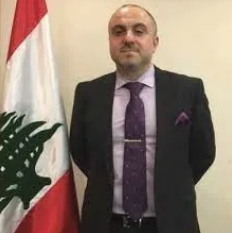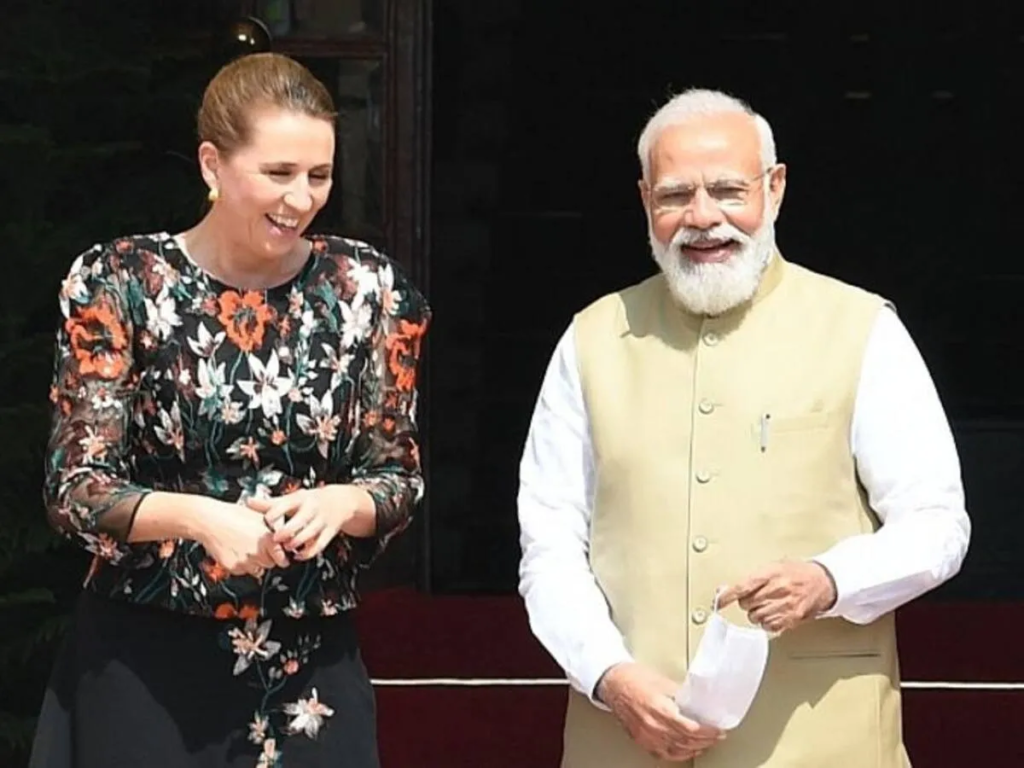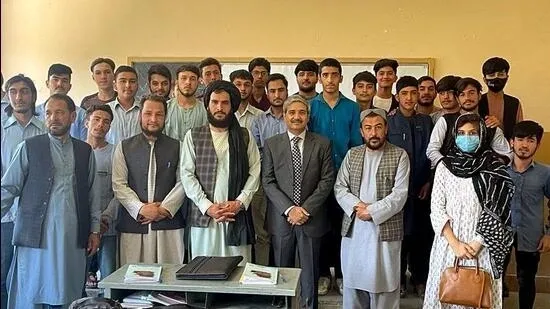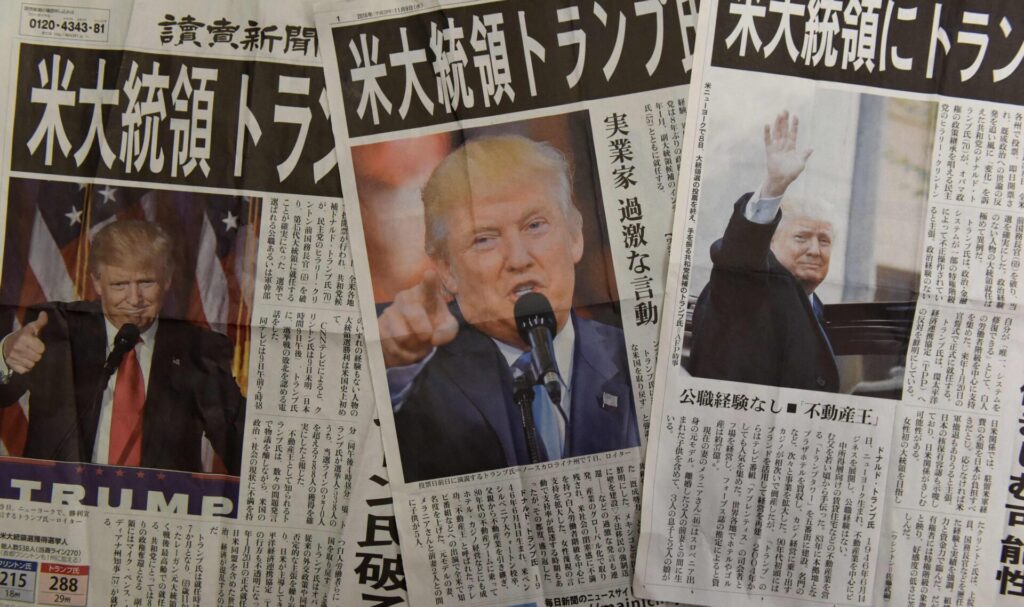
Dr. Habib Al-Badawi
In the ever-evolving geopolitical landscape, the robust alliance between Japan and the United States has long served as a bedrock of stability and cooperation in the West. However, as the prospect of a second Trump presidency gains traction, Japanese officials find themselves scrambling to meticulously prepare for the potential upheaval and safeguard their nation’s vital interests amidst the tumultuous currents of American politics.
At the heart of these intricate efforts lies Sunao Takao, the seasoned interpreter whose pivotal role in bridging the communication gap between former Prime Minister Shinzō Abe and the mercurial Donald Trump proved invaluable during their consequential encounters. These encounters are often punctuated by rounds of golf on lush greens.
With the ominous spectre of a Trump resurgence looming, Japanese officials are deftly manoeuvring to position Takao in a strategically paramount role, one that would fortify engagement with the Republican candidate’s campaign. Their objective? To preemptively mitigate any potential policy shockwaves that could send tremors through the corridors of power in Tokyo.
As Takao’s tenure at Japan’s embassy in Beijing draws to a close, intense deliberation is underway to chart the course for his next assignment. The Harvard-educated diplomat, renowned for his intimate understanding of Trump’s idiosyncrasies and the rapport he cultivated with the former president, is poised to assume a U.S.-focused position. This strategic maneuver would enable Tokyo to leverage Takao’s invaluable insights and hard-won familiarity with Trump, honed through years of interpreting for Abe during their high-stakes encounters.
While discussions surrounding Takao’s precise location and timing remain fluid, with some officials advocating for his deployment to Japan’s embassy in Washington, D.C., and others proposing that he operate from the hallowed halls of Tokyo itself. One thing remains crystal clear: Takao’s expertise is pivotal in Japan’s intricate strategic calculus as it navigates the uncharted waters of a potential Trump resurgence.
Amidst these high-level deliberations, Takao has maintained a steadfast silence, refraining from addressing inquiries regarding his potential future roles. Japan’s foreign ministry, too, has adopted a circumspect stance, closely monitored the unfolding U.S. election drama but abstained from commenting on specific personal matters. However, the mere fact that such intense deliberations concerning a mid-ranking bureaucrat are taking place underscores the palpable sense of urgency permeating Japanese diplomatic circles as they brace for the potential trade and geopolitical shockwaves. These could reverberate in the wake of a Trump victory.
Apprehensions abound that the former president, should he reclaim the Oval Office, may pursue rapprochement with China, resurrecting the specter of protectionist trade measures that could imperil Japan’s economic interests. Moreover, there are mounting concerns that Trump may demand increased financial contributions from Tokyo to offset the costs of maintaining U.S. forces on Japanese soil, a proposition that could strain the already delicate balance of the bilateral alliance. These concerns are rooted in Trump’s previous criticism of allies’ burden-sharing arrangements and his “America First” approach to foreign policy.
In a bid to fortify their defenses against such contingencies, Japanese officials have embarked on an intensive campaign to cultivate connections with individuals perceived to wield influence within Trump’s inner circle. This concerted outreach effort, which Joshua Walker, President of the Japan Society, a New York-based non-profit dedicated to promoting U.S.-Japan relations, has aptly termed a full-court press. It underscores the gravity of Japan’s preparations and its determination to maintain a strong alliance with the United States. Regardless of who occupies the White House.
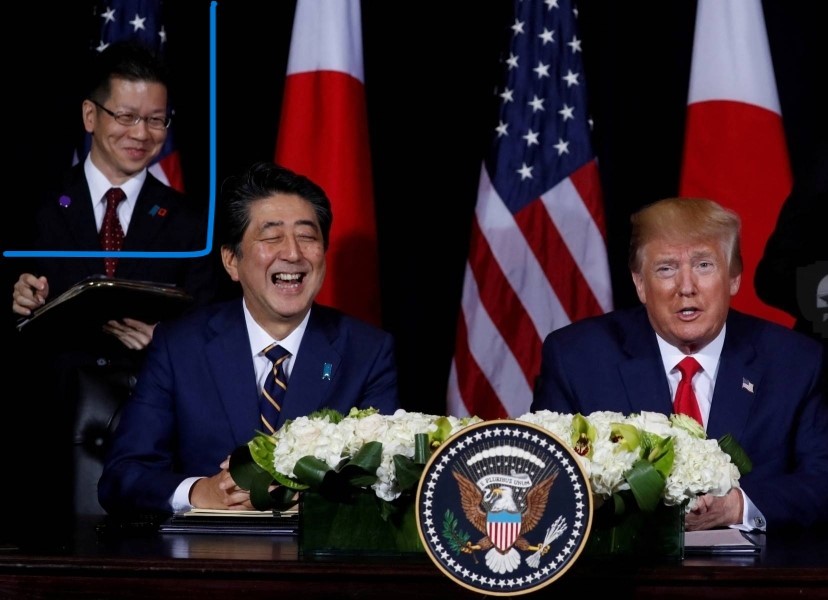
Takao’s previous collaborations with Japan’s ambassador to the U.S., Shigeo Yamada, who assumed his post late last year with explicit instructions to engage with the Trump campaign, have further solidified the interpreter’s credentials for this critical assignment. Moreover, officials at Japan’s U.S. embassy have engaged in a series of recent interactions with key figures from Trump’s prior administration, including his former chief of staff, Mark Meadows, and ex-national security adviser, Robert O’Brien. These discussions, aimed at divining insights into Trump’s foreign policy intentions and the potential composition of a future cabinet, reflect the profound depths into which Japan’s preparations have delved.
Compounding these efforts, Taro Aso, a senior statesman within Japan’s ruling party and a former deputy prime minister during Trump’s tumultuous tenure, is weighing the prospect of embarking on another visit to the United States in the coming months. His objective? To establish direct lines of communication with Republican lawmakers closely aligned with Trump, laying the groundwork for a potential future administration, and underscoring the multi-faceted nature of Japan’s outreach endeavours.
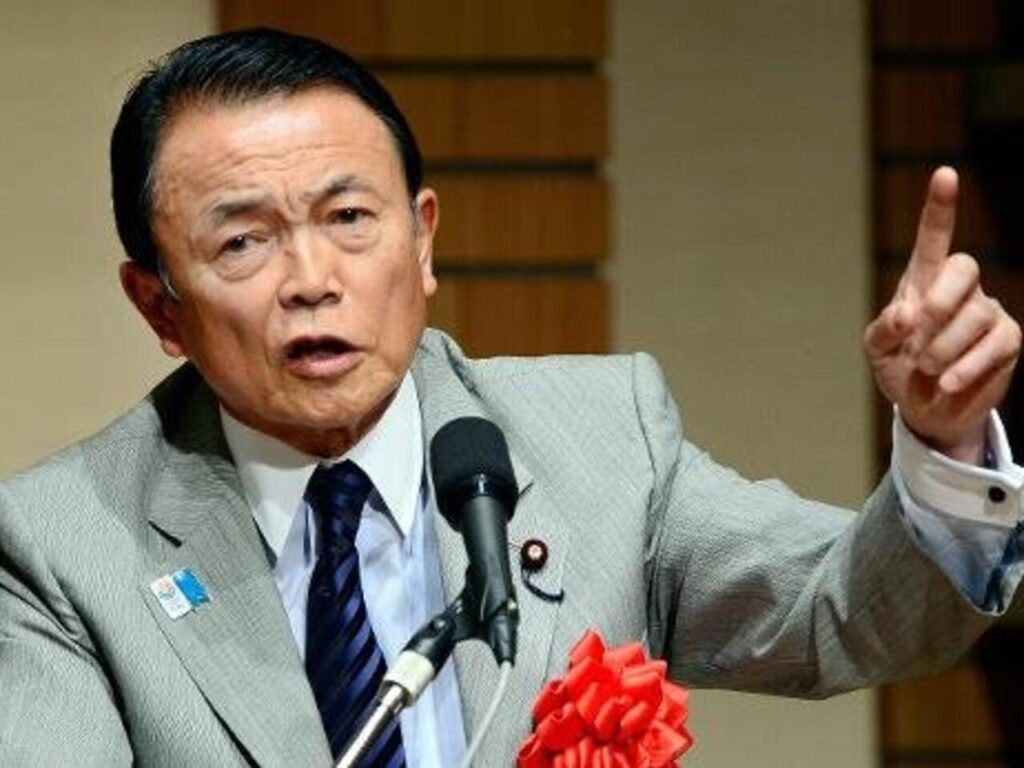
This pre-emptive push is not without precedent. In a pivotal moment following Trump’s electoral triumph in 2016, it was Abe himself who became the first foreign leader to meet with the then-president-elect, forging the close ties that would come to define their relationship in the years that followed. Tragically, Abe’s life was cut short by an assassin’s bullet in 2022, leaving a profound void in Japan’s diplomatic ranks—a void that the nation now grapples with as it confronts the possibility of a Trump resurgence and the potential loss of a skilled diplomatic interlocutor with the former president.
The current outreach campaign unfolds at a delicate juncture for Prime Minister Fumio Kishida, who is scheduled to visit the United States next month at the invitation of Trump’s Democratic rival, President Joe Biden. During this pivotal summit, the two leaders are expected to reach an accord on strengthening bilateral military cooperation, a development that Reuters reported earlier this week. This accord is seen as a crucial step in bolstering the U.S.-Japan alliance, which could face new challenges should Trump return to power with a more isolationist foreign policy agenda.
Takao’s role in interpreting for Abe during his dozens of meetings with Trump between 2016 and 2020 was nothing short of pivotal. From the opulent confines of Trump Tower to the armored cocoon of the presidential limousine, nicknamed The Beast. From a ceremonial sumo match in Japan to their shared passion for golf outings, Takao’s presence was instrumental in facilitating communication between the two leaders.
The resolute civil servant, raised in the United States before returning to Japan as a teenager, spent countless hours meticulously studying footage of Trump—and even delving into the intricacies of golf’s rulebook—ahead of these high-stakes encounters. This diligent preparation enabled him to smoothly interpret the leaders’ exchanges, his deft linguistic prowess catching the attention of Trump and his aides alike.
In a Wall Street Journal op-ed, Matt Pottinger, Trump’s former deputy national security adviser, eloquently encapsulated Takao’s virtuoso performance, noting that he “rendered the Japanese leader’s upbeat staccato into resonant English, even while clinging to the back of a racing golf cart.” Pottinger’s effusive praise extended further, as he affirmed to Reuters that Takao “is a superb diplomat and was very effective as the English-language ‘voice’ of Prime Minister Abe,” adding the prescient observation that “he will be an asset to Japan in whatever role he is assigned.”
The depth of the rapport Takao cultivated with Trump was laid bare when, after one of his golf outings with Abe in 2019, the former president jokingly referred to the interpreter as “junior prime minister”—a testament to his indispensable presence and the esteem in which he was held by the mercurial leader.
Despite his linguistic limitations when it came to Mandarin fluency, Takao’s diplomatic acumen and versatility were on full display in 2021 when he was appointed as a political counsellor in Japan’s embassy in Beijing. There, he swiftly became a familiar and respected figure among the Western diplomatic corps. Throughout his distinguished career, which included a previous stint as second secretary in Japan’s U.S. embassy, Takao has earned a reputation as a relentless workaholic and a rising star within Japan’s foreign service ranks—attributes that have only served to further solidify his credentials for the pivotal role he is now poised to assume.
However, as Japan braces for the possibility of a second Trump presidency, the echoes of Shinzō Abe’s adept handling of the former administration continue to reverberate, prompting introspection on his diplomatic finesse and strategic alignment with Trump’s policies. In Abe’s absence, Japan confronts a formidable challenge in navigating the potential upheavals and policy shifts that could accompany a renewed Trump administration.

The haunting specter of “Moshi Tora,” or “If Trump,” has permeated Japan’s political discourse, underscoring the palpable apprehensions surrounding a potential return of the former president to the White House. A second Trump term could upend the careful diplomacy and personal rapport that Abe cultivated, forcing Japan to recalibrate its approach to managing the crucial U.S. alliance.
Against this backdrop of uncertainty, Japan finds itself grappling with the void left by Abe’s untimely departure. A vacuum that has left the nation bereft of a figure possessing the diplomatic acumen and personal rapport with Trump that proved instrumental in managing potential challenges during the previous administration. As the nation navigates the turbulent currents of an increasingly volatile global order, the importance of having a well-positioned interlocutor like Takao, with deep insights into Trump’s psyche and negotiating style, cannot be overstated.
Takao’s potential deployment, whether in Washington, D.C., or Tokyo, would serve as a critical bulwark against the potential disruptions that could arise from a Trump presidency driven by an “America First” foreign policy agenda. His intimate knowledge of the former president’s idiosyncrasies and his ability to bridge the cultural and linguistic divide could prove invaluable in preventing misunderstandings and mitigating potential flashpoints in the bilateral relationship.
Moreover, Takao’s experience interpreting for Abe during their high-stakes meetings with Trump would allow him to provide invaluable counsel to Japan’s leadership, offering insights into the former president’s negotiating tactics and potential pressure points. This insider knowledge could inform Japan’s strategies for preserving its economic and security interests, ensuring that the nation is well-prepared to navigate the potential minefield of a second Trump term.
As Japan fortifies its diplomatic defences, the nation also faces the daunting task of cultivating new relationships within Trump’s inner circle, should he reclaim the presidency. The outreach efforts spearheaded by officials like Ambassador Yamada and Taro Aso reflect a recognition that personal connections and direct lines of communication will be critical in shaping the trajectory of U.S.-Japan relations under a potential Trump administration.
Furthermore, Japan’s diplomatic blitz underscores the nation’s unwavering commitment to maintaining strong ties with the United States, regardless of the political winds that may sweep through Washington. The bilateral alliance, forged in the crucible of the post-World War II era, has served as a bedrock of stability and security in the Asia-Pacific region. Japan has been determined to safeguard this vital partnership, even in the face of potential policy shifts or diplomatic upheavals.
While the world watches the unfolding political drama in the United States anxiously, Japan’s meticulous preparations and strategic manoeuvring serve as a testament to the enduring importance of the U.S.-Japan alliance. Whether Takao is ultimately deployed to the front lines of this diplomatic endeavour or not, his presence looms large as a symbol of Japan’s determination to weather any potential storms that may arise. To navigate the uncharted waters of a potential Trump resurgence with steadfast resolve and unwavering diplomacy.

